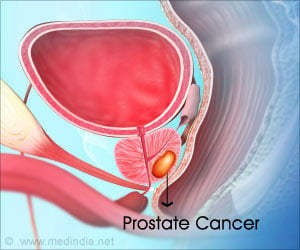Trans women, despite transitioning, remain at risk for prostate cancer. Dive deep into understanding the importance of prostate health post-transition.
- Transitioning doesn't remove the prostate gland; thus, trans women remain at risk for prostate cancer
- Hormone Replacement Therapy can affect the size and function of the prostate, but the risk of prostate cancer persists
- Recognizing symptoms and regular screening are paramount for early detection and effective treatment
Understanding the Prostate in Trans Women
The prostate is a gland present in individuals assigned to males at birth. It's located below the bladder and surrounds the urethra. Even after transitioning, the prostate remains intact. Hormone replacement therapy (HRT), often used by trans women during their transition, can reduce the size of the prostate but does not eliminate the gland or the risk associated with it (1✔ ✔Trusted SourceProstate cancer in transgender women: considerations for screening, diagnosis and management
Go to source).
How Hormone Treatments Impact the Prostate
HRT, which often involves the intake of estrogens and anti-androgens, helps to feminize the body. When testosterone levels drop due to these treatments, the prostate may shrink. However, this reduction in size doesn't correlate with a decreased risk of developing prostate cancer. The mechanisms of prostate cancer in trans women, especially those on HRT, are still not entirely understood and necessitate ongoing research.Symptoms that Trans Women Should Watch Out For
Given that the prostate remains in trans women, it's vital to recognize and act on any symptoms associated with prostate issues:- Frequent urination, especially at night
- Difficulty starting or maintaining a steady stream of urine
- Blood in urine or semen
- Painful ejaculation
- Persistent pain in the back, hips, or pelvis
Screening and Diagnosis of Prostate Cancer
Regular screenings are essential, especially for older trans women. PSA (Prostate-Specific Antigen) tests, which measure the level of PSA in the blood, are often used to detect prostate anomalies. Though this test can indicate other prostate issues and not just cancer, an elevated PSA level can be an early warning sign.However, it's essential to note that HRT can lower PSA levels. Thus, a PSA level that might be considered "normal" for cisgender men might be elevated for a trans woman on HRT. Healthcare providers must interpret PSA results in the context of HRT. In case of suspicious PSA levels, further tests, like a biopsy, may be recommended (2✔ ✔Trusted Source
Prostate cancer in transgender women: what does a urologist need to know?
Go to source).
Importance of Tailored Healthcare for Trans Women
Trans women often face disparities in healthcare, stemming from societal biases, lack of provider knowledge, or even personal apprehensions about seeking care. Healthcare providers need to approach prostate health in trans women with sensitivity, understanding, and expertise. Trans women should ensure they have a healthcare provider who acknowledges their unique needs and can guide them through the specifics of prostate health post-transition.Prevention and Awareness of Prostate Cancer
While the exact cause of prostate cancer is not known, some general guidelines can reduce the risk (3✔ ✔Trusted SourcePrevention and early detection of prostate cancer
Go to source):
- Maintain a balanced diet rich in fruits, vegetables, and whole grains
- Stay physically active
- Regularly consult with a healthcare provider about any prostate-related concerns or symptoms
- Stay informed about the latest research on prostate health in trans women
By addressing these concerns head-on and seeking the necessary medical advice, trans women can continue to live vibrant, healthy lives while being well-informed about all aspects of their health.
References:
- Prostate cancer in transgender women: considerations for screening, diagnosis and management - (https://pubmed.ncbi.nlm.nih.gov/36261584/)
- Prostate cancer in transgender women: what does a urologist need to know? - (https://pubmed.ncbi.nlm.nih.gov/34157213/)
- Prevention and early detection of prostate cancer - (https://pubmed.ncbi.nlm.nih.gov/25281467/)















